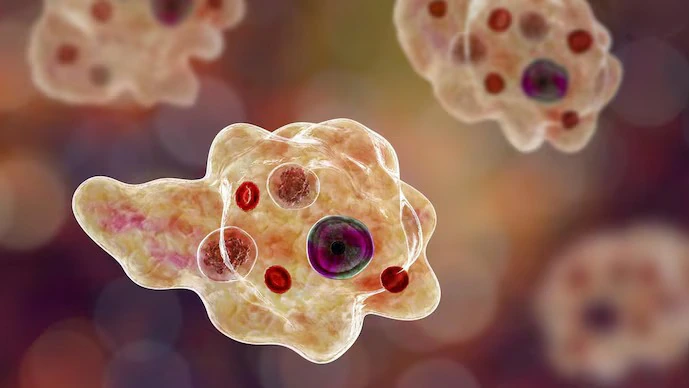Now Reading: Kerala Intensifies Efforts to Combat Rising Amoebic Meningoencephalitis Cases
-
01
Kerala Intensifies Efforts to Combat Rising Amoebic Meningoencephalitis Cases
Kerala Intensifies Efforts to Combat Rising Amoebic Meningoencephalitis Cases

Kerala is confronting a surge in amoebic meningoencephalitis (AME), a rare and often fatal brain infection caused by free-living amoebae like Naegleria fowleri. In 2025 alone, the state has reported at least 42 cases, including several fatalities. In response, the Kerala Health Department is implementing comprehensive measures to enhance surveillance, research, and public awareness to combat this public health threat.
Surveillance and Diagnostic Advancements:
The Kerala Health Department has designated key institutions for advanced diagnostics and research on AME. The Institute of Advanced Virology (IAV) at Thonnakkal and the State Public Health Laboratory at Pattoor are equipped with real-time PCR capabilities to detect infections caused by various free-living amoebae. These centers are also conducting genomic sequencing to better understand the pathogens involved. Collaborations with national institutions like PGIMER Chandigarh and the Indian Institute of Science are further strengthening research efforts.
Environmental and Epidemiological Studies:
Recognizing the role of environmental factors in the proliferation of amoebae, the Kerala Health Department is partnering with Kerala University and the State Pollution Control Board to study conditions conducive to amoeba growth. A case-control study with the National Institute of Epidemiology (NIE-ICMR) aims to identify risk factors associated with AME infections. These initiatives are crucial for developing targeted prevention strategies.
Public Awareness and Preventive Measures:
To mitigate the spread of AME, the Kerala government has launched the “Jalamanu Jeevan” (Water is Life) campaign. This initiative promotes water chlorination and educates the public, especially schoolchildren, about safe water practices. Health authorities advise residents to avoid swimming in stagnant or untreated water and to use nose clips or sterilized water for nasal cleansing routines. Maintaining clean water bodies and proper waste management are emphasized as key preventive measures.
Conclusion:
Kerala’s proactive approach to combating amoebic meningoencephalitis through enhanced surveillance, research, and public education serves as a model for addressing emerging infectious diseases. By integrating scientific research with community engagement, the state aims to reduce the incidence and impact of this rare but deadly infection. Continued vigilance and adherence to preventive guidelines are essential in safeguarding public health against AME.

























